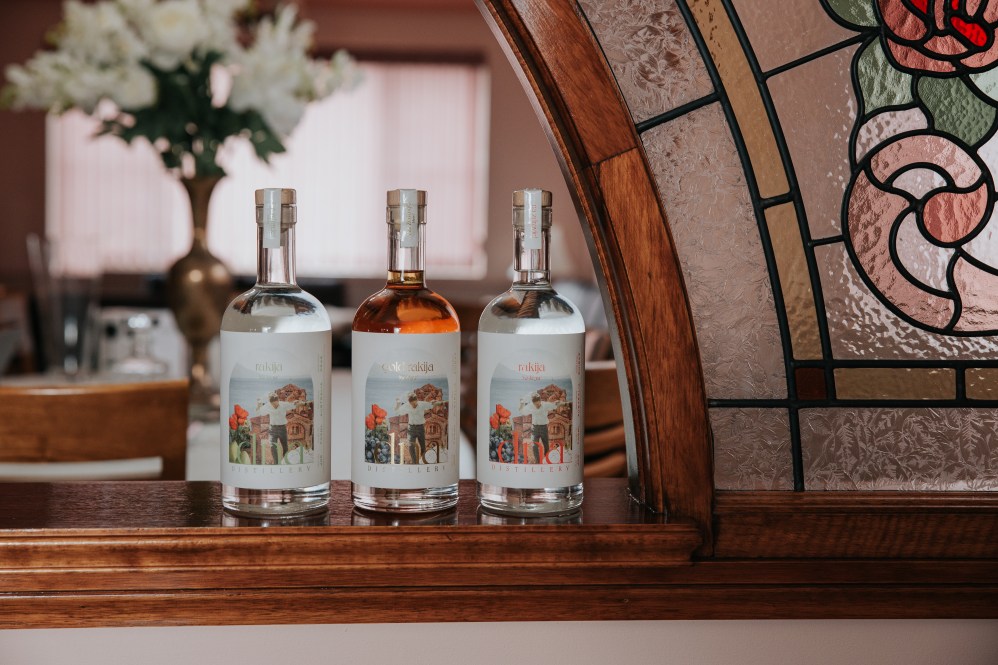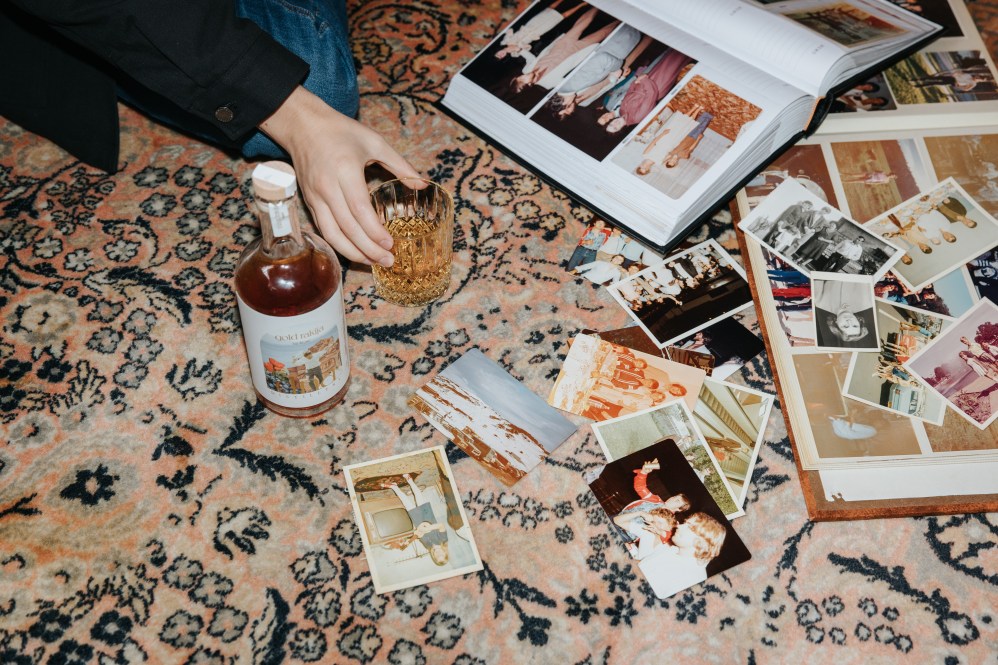Italy has grappa, Poland has vodka, but what about the Balkans? The answer is rakija, a high-ABV, double-distilled fruit spirit crafted from grapes, plums, apricots, or apples. Like most traditional liquors, many families make their own versions, which has seen generational recipes preserved over the years.
Here in Australia, the commercial rakija scene is a small one indeed, with only a handful of producers making the spirit across the country. Sydney’s DNA Distillery, run by cousin duo Monique Sutevski and James Projcevski, is one of them. The pair speak to Hospitality about rakija and challenging bartenders to use the spirit to bring a new edge to drinks.
First-generation Macedonian–Australian cousins Monique Sutevski and James Projcevski have long been familiar with rakija. It’s been the go-to drink for their family, with five generations making the spirit so far. “To us, it’s the drink of moments,” says Projcevski. “You drink it at christenings, weddings, and funerals. It’s a staple of family life.”
In 2020, after graduating with a law degree, Sutevski decided she wanted to try her hand at making rakija according to the family’s recipe. Projcevski was on board and the pair launched Sydney’s first rakija brand in December 2021, calling it DNA Distillery.
DNA now produces three rakija products — Classic, Gold, and Pear — using Sutevski and Projcevski’s family recipes. The Classic is an ode to the duo’s dedo (grandfather) and his own formula, while the Pear is in honour of their baba (grandmother).

The Classic and Gold rakijas are both crafted from organic Australian Shiraz grapes which are double distilled in a custom-made still imported from Poland. The
first distillation turns the fruit into a spirit, with the second ensuring it has been distilled to its highest potential.
While that’s the end of the process for the Classic, the Gold undergoes an infusion process using a secret family recipe blend. The Pear rakija follows the same process as the Classic but is made with Australian-grown organic pears instead.
When it comes to flavour profile, Sutevski and Projcevski say they try to draw comparisons to other spirits so unfamiliar consumers can get a better idea of what rakija is. The Classic sits on the lighter and fresher end of the flavour scale and is comparable to tequila or gin minus the juniper.
“The Classic has a subtle floral character with a classical, fruity aroma,” says Sutevski.
Whereas the Gold is more comparable to whisky. “Our Gold rakija is much more like whisky, bourbon, or rum and has a more complex taste. It’s a more structured and concentrated palate and has a vanilla, nutty flavour to it.”
When DNA launched, the distillery was one of just two rakija producers in Australia, which meant the pair had to educate the industry and the wider drinking public on the spirit and how to use it.
“It’s a lot of fun marketing rakija because you get to take people on a journey and the Australian consumer is someone who is happy to try new things,” says Projcevski. “We also get to see bartenders have fun with it. We love seeing them play around with the spirit and making things that we never thought were possible.”

For Sutevski and Projcevski, rakija is always drunk neat — but it’s not the only application they suggest. “We have been introduced to rakija by our family and they normally sip it straight,” explains Projcevski. “But we also want to see how everyone else drinks it and open our eyes to new ways. It’s a journey for us seeing how it evolves.”
The duo is keen for bartenders to try their hand at making cocktails with rakija. But where to start? “If it’s a clear spirit that goes into a cocktail, substitute the spirit for our classic rakija, or if it’s a gold spirit, go for our Gold,” says Projcevski.
One of the easiest combinations is combing rakija with soda and lime in replacement of gin or vodka. “It’s really interesting when you substitute it [rakija] for other spirits because the floral fragrance of the rakija and the Shiraz come through as a whole,”
says Sutevski.
Cocktail-wise, the options are endless — think a Macedonian mule or a sour with the Gold rakija or an espresso martini with the Classic. “We love to see the experiments people make with it,” says Projcevski. “We want to work with bartenders and venues to help them come up with some amazing cocktails and show something different to their patrons.”
Sutevski and Projcevski believe rakija could be a gamechanger in the industry. “In the same way gin and tequila had a renaissance, we feel like rakija could be that next spirit,” says Projcevski. “We really feel like once the education is there, we will
have something everyone loves to drink.”
Sponsored Content

Discover Dairy Farmers’ range of shredded cheese
Sponsored by Bega

Beachfront Melbourne Club catering & restaurant opportunity
Sponsored by Future Food
Trending Now
Resources
Lorem ipsum dolor sit amet, consectetur adipiscing elit. Fusce ac ornare lectus. Sed bibendum lobortis...
Lorem ipsum dolor sit amet, consectetur adipiscing elit. Fusce ac ornare lectus. Sed bibendum lobortis...
Sign up for our newsletter
